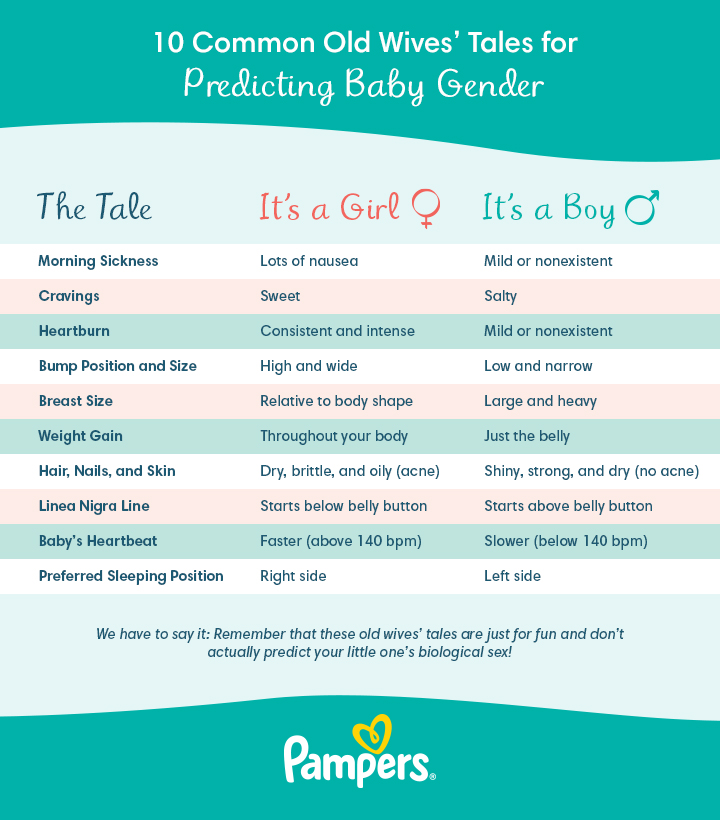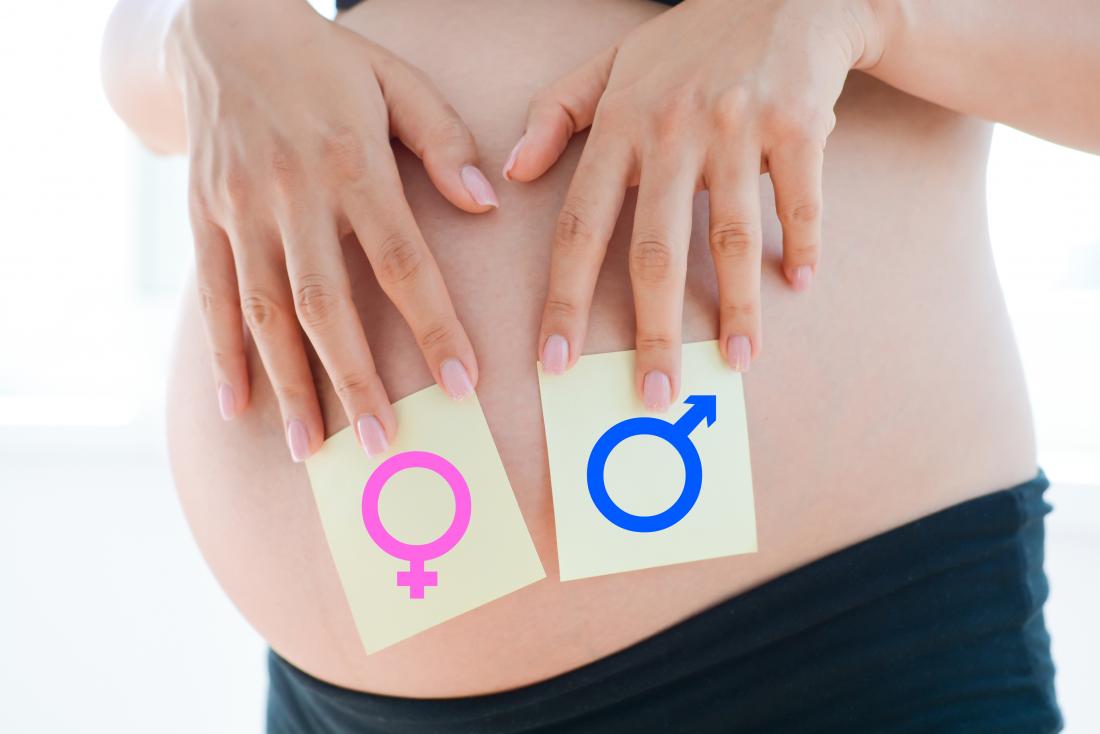Dry skin on the face during pregnancy does not indicate whether the baby is a boy or a girl. It is a common occurrence during pregnancy and can be treated with various remedies.
Pregnancy is a beautiful journey and one of the most exciting times in a woman's life. However, the many changes that happen in the body can also come with some challenges. Dry skin on the face is one of these common issues that many women face during pregnancy.
It can be uncomfortable and even frustrating, but the good news is that it is treatable. While some people believe that dry skin is a sign that you are carrying a boy, there is no scientific evidence to support this claim. We will explore the causes of dry skin during pregnancy and provide tips on how to manage it.

Credit: www.pampers.com
Dry Skin As A Symptom Of Pregnancy
During pregnancy, dry skin is a common symptom which can appear on the face. However, it doesn't indicate whether you're having a boy or a girl. This is a normal occurrence and can be treated by following a skincare routine that includes gentle cleaning and moisturizing.
Dry Skin as a Symptom of Pregnancy Pregnancy is an incredible phase of a woman’s life, but it can also come with its own set of skin-related challenges. Dry skin on the face is a common symptom that many women experience during pregnancy. It’s mostly a result of hormonal changes, which affect the oil glands in the skin. For some women, dry skin may be present throughout pregnancy, while for some it may fade away in the second or third trimester. Let’s take a look at some common causes and symptoms of dry skin on the face during pregnancy.
Causes Of Dry Skin During Pregnancy
The primary cause of dry skin during pregnancy is hormonal changes. The body produces more estrogen and progesterone during pregnancy, which affects the oil glands, making your skin drier than normal. The increase in blood volume can also cause dehydration, leading to dry skin. Additionally, changes in climate and diet may also cause dry skin.
Symptoms Of Dry Skin On The Face
The symptoms of dry skin may vary from mild to severe, depending on the individual. Some common symptoms of dry skin on the face include flakiness, itchiness, redness, and tightness. You may also notice small cracks or lines on your skin, which may feel uncomfortable. Dry skin during pregnancy can be particularly bothersome since it is often concentrated on the face, which is a highly visible area. It’s essential to take care of your skin during pregnancy to minimize the risk of dryness and discomfort. Drinking plenty of water, eating a balanced diet, and avoiding harsh chemicals can help keep your skin healthy and hydrated. Additionally, it is recommended to use a gentle moisturizer that is free of harmful chemicals to keep your skin soft and supple. If you experience severe dryness that persists despite these measures, it’s best to consult with your healthcare provider for guidance.
Myths And Old Wives Tales
Old wives tales suggest that dry skin on the face during pregnancy indicates the gender of the baby, with some saying it's a sign of having a boy. However, there's no scientific evidence to support this claim. Dry, itchy skin is common during pregnancy and is nothing to worry about.
Myths and Old Wives Tales: Dry Skin on Face During Pregnancy Boy Or Girl There are many myths and old wives tales surrounding pregnancy, and one of the most popular is the idea that the gender of your baby will determine whether or not you experience dry skin on your face. While this may seem like an old-fashioned belief, it is still widely circulated on the internet and among some pregnancy forums. In this section, we will explore this gender prediction folklore and what science really says about it. H3: The belief in gender determining dry skin on the face Many people believe that if you are carrying a boy, you are more likely to experience dry skin on your face during pregnancy. This is because it is believed that male babies take more nutrients from their mothers, which can leave them with less hydration and nutrients for their own skin. However, there is no scientific evidence to support this claim. Dry skin is a common symptom during pregnancy, regardless of baby gender, and can be caused by hormonal changes, dehydration, or other factors. H3: Other gender prediction folklore Dry skin on the face during pregnancy is just one of many old wives tales related to baby gender prediction. Some people believe that carrying high or low on your belly can determine the baby's gender, while others look for signs like morning sickness or pregnancy glow. However, it's important to note that these beliefs have no scientific backing. There is no surefire way to predict the sex of your baby, and relying on these old wives tales could lead to disappointment or false hope. In conclusion, while there are many myths and old wives tales surrounding pregnancy, it's important to remember that they have little to no scientific basis. Dry skin on the face during pregnancy is a common symptom that can affect anyone, regardless of baby gender. If you experience dry skin during pregnancy, there are many safe and effective remedies that can help, such as using a gentle moisturizer and drinking plenty of water. The most accurate way to determine your baby's gender is through genetic testing or ultrasound.
Scientific Research
Dry skin is a common occurrence during pregnancy and doesn't indicate the baby's gender, regardless of popular myths. Treating dry skin with gentle, moisturizing products can help alleviate discomfort.
ring pregnancy. However, many people wonder whether dry skin on the face during pregnancy can indicate the gender of their baby. In this section, we will delve into the scientific research behind this common belief.
Studies On The Correlation Between Dry Skin And Fetal Gender
Several studies have been conducted to investigate the relationship between dry skin during pregnancy and fetal gender. A study published in the journal Acta Dermato-Venereologica found that women carrying female fetuses were more likely to experience dry and itchy skin, while those carrying male fetuses had a higher incidence of acne. Another study published in the International Journal of Obstetrics and Gynecology found that women with severe itching during pregnancy were more likely to have a girl. While these studies suggest a possible link between dry skin and fetal gender, more research is needed to confirm these findings.
Expert Opinions
Expert opinions on the relationship between dry skin during pregnancy and fetal gender are mixed. Some dermatologists believe that hormonal changes during pregnancy can cause dry skin, regardless of fetal gender. Others believe that the gender of the baby can affect the mother's skin in various ways, including dryness. However, there is no consensus among experts regarding this issue. In conclusion, while some studies suggest a possible link between dry skin during pregnancy and fetal gender, more research is needed to confirm this association. It is important to remember that dry skin during pregnancy is a common and normal occurrence, and it does not necessarily indicate the gender of the baby. If you experience severe or persistent dry skin, it is recommended to consult with a dermatologist or a healthcare provider.

Credit: gulfnews.com
Caring For Dry Skin On The Face During Pregnancy
Dry skin on the face is a common occurrence during pregnancy. While it does not necessarily indicate the gender of the baby, it can be uncomfortable and frustrating to deal with. The good news is that there are simple steps you can take to manage dry skin during pregnancy and achieve a healthy-looking complexion.
Tips For Managing Dry Skin During Pregnancy
- Hydrate yourself by drinking plenty of water and consuming a diet rich in essential fatty acids.
- Avoid hot showers, as they can strip the skin of its natural oils.
- Use lukewarm water to wash your face instead of hot water.
- Moisturize your skin twice a day with a gentle, fragrance-free moisturizer.
- Avoid scratching or picking at dry patches on your face to prevent irritation or infection.
Skincare Products Safe For Use During Pregnancy
It is important to be cautious about the skincare products you use during pregnancy to avoid harmful chemicals that could potentially harm the baby. Look for products with natural and safe ingredients such as:
| Safe Ingredients | Avoid Ingredients |
|---|---|
| Shea butter | Retinoids |
| Aloe vera | Salicylic acid |
| Coconut oil | Fragrance |
| Vitamin E | Hydroquinone |
It is also recommended to consult with your healthcare provider before using any new skincare products during pregnancy.
By following these simple tips, you can effectively care for dry skin on the face during pregnancy and enjoy a healthy, glowing complexion.

Credit: www.medicalnewstoday.com
Frequently Asked Questions On Dry Skin On Face During Pregnancy Boy Or Girl
What Are The First Signs In A Boy?
Possible short answer: The first signs of having a boy may include not experiencing morning sickness in early pregnancy, carrying extra weight out front, having a belly that looks like a basketball, carrying low, and darkening of the areolas. However, these are mostly anecdotal or old wives' tales, without scientific evidence.
Dry skin or glowing skin during pregnancy does not reliably predict the baby's gender. Eczema during pregnancy is more common in females. Dry, itchy skin is normal during pregnancy, regardless of the baby's sex.
Does Glowing Skin Mean Boy Or Girl?
No, there is no scientific evidence to suggest that glowing skin during pregnancy can determine the baby's gender. Anecdotal evidence online reveals a combination of people who state correlations of pregnancy glow between both girls and boys. Dry skin during pregnancy is common and perfectly normal and does not determine the baby's gender.
How Do You Know If Your Baby Is Going To Be A Boy?
There is no scientific way to know if your baby is going to be a boy. However, according to old wives' tales, carrying low, having a basketball-shaped belly, darkened areolas, and no morning sickness could indicate that you are having a boy.
Dry skin or pimples don't indicate the gender of the baby.
Which Gender Has Eczema During Pregnancy?
Females are more likely to experience eczema than males during pregnancy. However, it is unclear how many people develop eczema during pregnancy, but research suggests that eczema accounts for one-third to one-half of all dermatitis cases during pregnancy.
Conclusion
Dry skin is one of the common skin issues that pregnant women face. It is important to understand that it doesn't indicate the gender of the baby. As hormonal changes can cause skin dryness, it is always better to take care of your skin from the start of your pregnancy.
Though there are many old wives' tales that link dry skin to a boy, there is no scientific evidence to support these claims. So, don't worry about the gender prediction, but focus on taking care of yourself and your baby during this beautiful journey.
